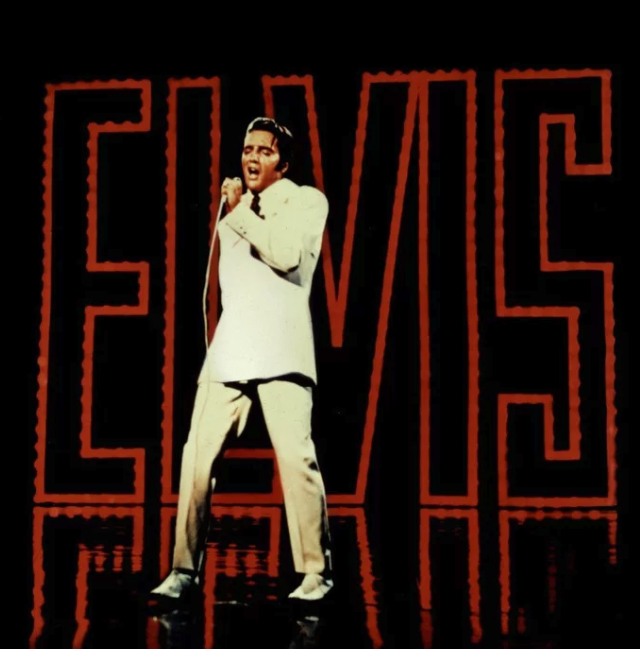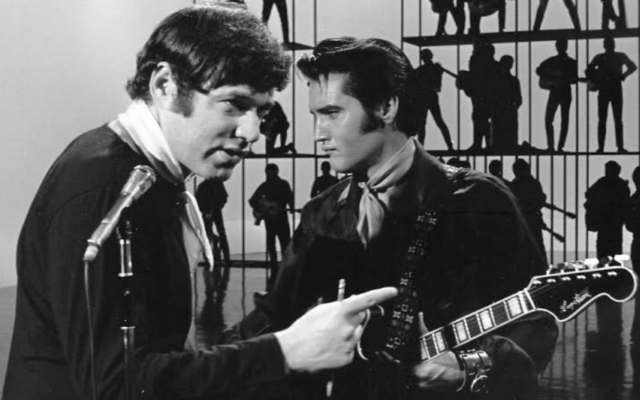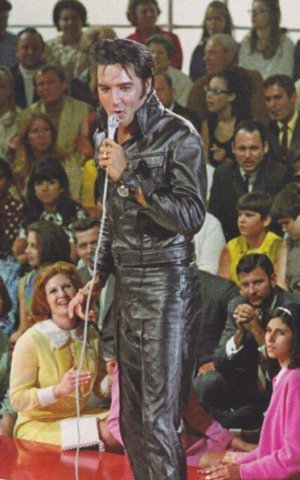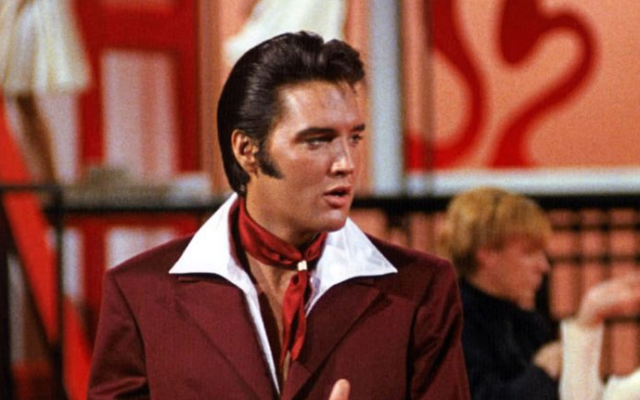Elvis Documentary Reveals a High Holiday Message
New documentary of the 1968 Comeback TV Special is about an important turning point in singer’s career.
Paramount+, the streaming service, probably didn’t release its new documentary about Elvis Presley and his 1968 Comeback Television Special with the High Holidays in mind. But the production released last month makes lavish use of outtakes and broadcast scenes from the original NBC television program that could be made into an interesting holiday sermon. There is much to learn here about the power of self-reflection and renewal that are such an important part of the Jewish holiday season.
Presley may not have originally seen the television special that way, but the director of the program, Steve Binder and its producer, Bob Finkel, probably did. This creative pair, both of whom were Jewish, came up with the idea to completely transform what was originally designed to be a traditional holiday special during the first week in December. Instead, they made it into an opportunity for Elvis to shake off the old and self-defeating mistakes of the past and to return to a more vibrant, alive re-creation of who he once was.

If that sounds like too much of a stretch for this smartly produced look back at the spiritual and psychological transformation of a superstar, you have only to consult Binder. He is both one of the executive producers of the program and the gracious and charming host of the documentary. At the age of 91, he is the charming host of the program as well as one of the few original survivors who created the production. His memory of the time is both sharp and insightful.
Binder reminds us in the opening minutes of the documentary that when Presley was first summoned to go before the television cameras, he froze. A decade of starring in a long string of mostly forgettable Hollywood musicals, with predictable plots and few personal challenges, had left him with an almost overwhelming fear that he couldn’t restart his once red-hot performing career.
It was to Binder’s credit that he persuaded Presley that he had no choice. Then he went on to help his star create what is generally considered one of the greatest musical performances in the history of television. As the documentary so clearly relates, often in intrusive and intimate close-ups, Presley quickly regained the sheer joy he once had in live performance.

And as that confidence builds, he is literally transformed before our eyes into the dynamic, soul stirring entertainer that he had once been. What we are privileged to see in Binder’s retelling is the return in both body and spirit of a performer who had revolutionized both American music and American culture. As John Lennon puts it — at one point in this fascinating program, before Elvis Presley, there was nothing.
While this documentary effectively relates how Presley was renewed and re-empowered by his newfound self-confidence, the program also attempts to make the argument that this telecast did the same thing for America. We are vividly reminded that 1969, the year the program was broadcast. was an extraordinarily chaotic one.

Both Dr. Martin Luther King, Jr. and Robert Kennedy were gunned down, there were bloody riots at the Democratic national convention in Chicago, the Tet offensive by North Vietnam became a turning point in the Vietnam War, and a number of cities in America came under violent siege. Presley’s music, it suggests, brought us all together, particularly in his stirring performance during the final minutes of the production. Like some High Holiday cantor, dressed completely in white, cantor Elvis sings his heart out to his unseen congregation beyond the footlights.
As he intones a prayer that says we may “be trapped in a world that’s troubled with pain, but as long as man has the strength to dream, he can redeem his soul and fly.”
The television program was a smashing success, critically and commercially, and it reestablished Presley as an entertainer to be reckoned with. It helped to inspire a succession of lavish sold-out stage shows in Las Vegas and large arenas around the country.
In the eight years that remained in his life, Presley, who delved into the study of Jewish mysticism and wore a gold chai around his neck, was proud of having discovered that he had a Jewish great-grandmother. And he never forgot how his Jewish producer and director at NBC had given him a new beginning on national television just before the start of another New Year.
It is not too late, he seems to be saying to all of us after so many years. We have the power to turn and be renewed. I have done it and so can you.




comments